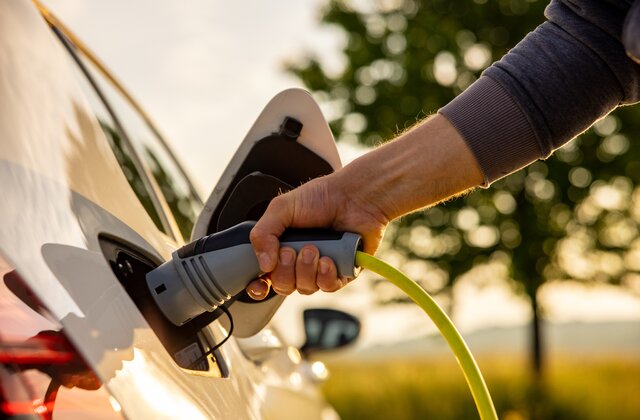Electric vehicle sales are key to achieving climate goals. However, the numbers are clear: EV sales have declined in the West, and if governments want them to recover, it could be to the detriment of their economies.
The electric car market will witness a slowdown in 2024 after years of high sales. According to the BBC, replacing fossil fuel cars with electric vehicles is key to the British government's plan to meet its climate targets – remember, road transport is responsible for 12% of global emissions.
The question that arises is: Is this slowdown just a blip that will disappear in the rearview mirror, or will it last longer? If this continues, will governments have the courage (and political will…) to do what is necessary to sustain the growth of net zero road emissions?
The growth in electric vehicle sales has been remarkable. In 2020, there were 10 million electric vehicles on the road, and in 2023 there are 45 million. But sales must still be significant to meet targets: by 2035, the International Energy Agency (IEA) estimates that 790 million electric cars will be needed if we are to reach net zero by mid-century, which would mean sales growing by 27% every year. . .
In this sense, the fact that global sales of the world's largest electric car manufacturer, Tesla, were actually lower in the first quarter of 2024 than in the same period in 2023, raised eyebrows. BYD – China's largest electric vehicle maker – also suffered a slowdown between January and March.
In Europe, electric vehicle sales fell by more than 10% year-on-year in the fourth quarter of last year, with the exception of the United Kingdom, where total sales rose.
In the British Isles, analysts say strong electric vehicle sales in recent years have been driven by company purchases of cars, thanks to generous tax incentives. However, the UK market has proven “hard to crack”, with people saying they are mainly put off by the high cost.
China produces far more electric cars than the domestic market needs, and could easily flood the US and European markets with cheap cars if it was not constrained by tariffs.
Here lies the dilemma facing European and American politicians. They want cheaper electric cars to facilitate the climate transition, but not at the expense of undermining their automakers and local jobs. Therefore, talks about increasing tariffs and other trade barriers to imports to prevent the entry of ultra-competitive Chinese electric vehicles have already become frequent. This is precisely what US President Joe Biden did this week, imposing a new 100% tariff on Chinese electric car imports.
AIE still expects an increase in sales in 2024, which would more or less keep us on the path to net zero. But between Western prices and Chinese satiation, the tension between Western governments' desire to decarbonize the transportation sector and their desire to protect their own industry is expected to become more acute. This will naturally force governments to make a choice at some point.

“Wannabe internet buff. Future teen idol. Hardcore zombie guru. Gamer. Avid creator. Entrepreneur. Bacon ninja.”

